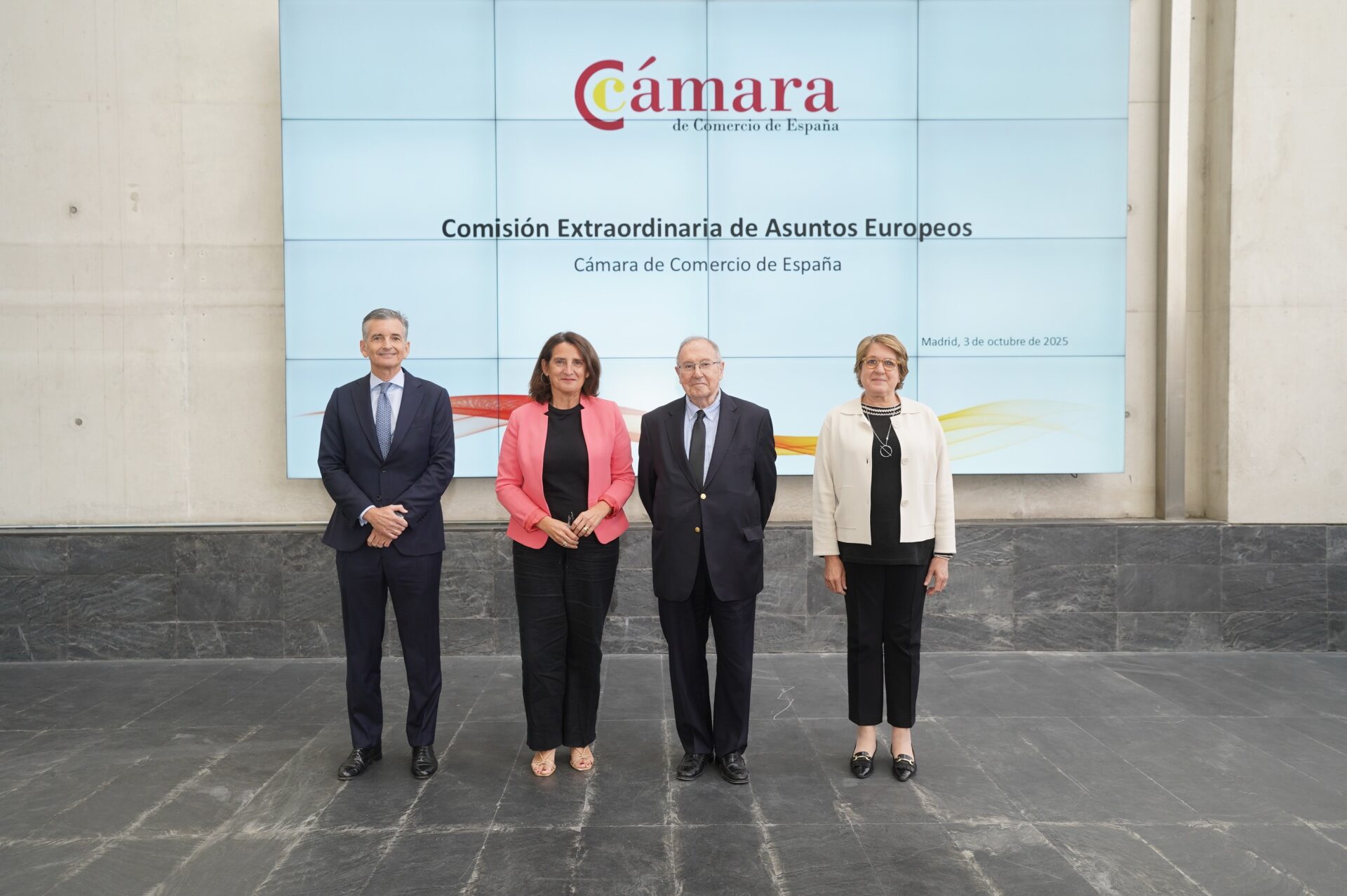As part of these efforts to promote dialogue, last week we welcomed Teresa Ribera, Executive Vice President of the European Commission for a Clean, Just and Competitive Transition. The session provided an enriching discussion between the senior European Commission representative and the business community regarding the challenges Europe is facing in its decarbonization process, without undermining its industrial base or global economic leadership.
Despite the uncertain geopolitical context, Ribera was optimistic, pointing out that Europe has “great opportunities and strengths” to achieve its goals. But she warned that it is time to take a “qualitative leap” that entails working on two fronts: the domestic agenda, moving towards greater integration of the Single Market; and the external agenda through the redefinition of its trade policy.
In her remarks, the Vice President underscored six strategic pillars, from global geopolitical transformation and the technological rivalry between the U.S. and China, to the central role of sustainability as a driver of competitiveness and the need for a more integrated Single Market and a stronger capital market – which is key to financing our innovation.
The Green Deal Industrial Plan is a key instrument to accelerate the decarbonization and modernization of the European industrial sector. Its objectives include promoting the production of clean technologies, reducing external dependencies and establishing a common, coherent framework that ensures equal opportunities among countries and sectors.
For Vice President Ribera, the discussion is not about whether we should move towards climate neutrality ensuring that the Green Deal targets “continue moving forward”, but about “how to fit the pieces together in the most efficient way”, supporting our SMEs so that no one gets left behind in this transition. At the bank, we support this vision, as we understand that sustainability and competitiveness are not conflicting goals, but rather complementary ones. Therefore, the success of the European model will depend on its ability to combine its climate ambition, social inclusion and technological innovation.
In the subsequent open dialogue with the business community, Ribera addressed some of the concerns that were shared by the presidents of the sectoral commissions: Federico Ramos (Circular Economy); Isabel Puig (SMEs) and Patxi Calleja (Energy). Their questions focused on the main pillars of European competitiveness: the circular economy, administrative simplification, the industrial strength of SMEs and access to European funding. In this regard, they highlighted the urgency of making further progress on regulatory simplification, and emphasized the importance of supporting SMEs to ensure their full integration, preventing the green transition from becoming a barrier to growth.
We are at a decisive moment. The European Union cannot afford to stand still. A clean, just and competitive transition will only be possible if the public and private sectors act as true strategic partners, each fulfilling their share of the commitment. It is a shared effort to build a stronger, more united Europe – one that is ready to lead the future.
